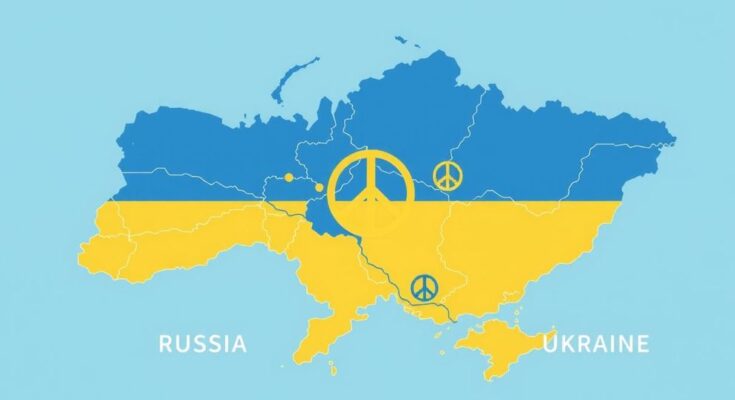Ukrainian officials stated that the potential for a ceasefire with Russia depends on Moscow’s willingness to agree, following U.S.-Ukraine talks in Saudi Arabia where a 30-day ceasefire was proposed. President Zelenskyy expressed optimism and readiness for peace, stating that U.S. involvement is vital. However, ongoing fighting underscores the complexities surrounding the ceasefire discussions.
The potential for a ceasefire between Russia and Ukraine now resides “in Moscow’s hands,” remarked Andriy Yermak, a senior aide to President Volodymyr Zelenskyy. This statement follows productive discussions between Ukrainian and U.S. officials in Saudi Arabia, where both sides have proposed a 30-day ceasefire aimed at initiating comprehensive peace negotiations to conclude Russia’s prolonged invasion of Ukraine.
Yermak stated on Telegram that Ukraine is prepared to accept the proposed 30-day ceasefire, emphasizing its necessity for formulating genuine security guarantees and establishing peace terms. He underscored that Russia’s agreement is crucial, asserting, “the whole world will see who really wants to end the war and who is simply playing for time.”
Former President Donald Trump’s return to office has introduced complexities for Ukraine, which can no longer depend on the steadfast support experienced under President Joe Biden. Trump has echoed Russian viewpoints, misrepresenting Ukraine’s role in the conflict and challenging Zelenskyy’s legitimacy. Recently, his administration implemented a halt in military and intelligence support for Ukraine, although this pause was lifted during the Saudi discussions.
Kyiv continues to demonstrate its willingness for peace but highlights that any successful negotiation must include American security guarantees to prevent further Russian aggression. Ukrainian officials express skepticism about Russia’s genuine interest in ending hostilities, prompting them to advise the U.S. about the Kremlin’s motives.
Following the Saudi talks, President Zelenskyy reaffirmed Ukraine’s readiness for the ceasefire, positing that U.S. persuasion of Russia is essential for progress. He stated, “Ukraine accepts this proposal, we consider it positive, we are ready to take this step.”
President Trump expressed optimism regarding the ceasefire discussions, noting, “Ukraine has agreed to it, and hopefully Russia will agree to it.” He anticipated further talks with Russian representatives in the coming days.
U.K. Prime Minister Keir Starmer declared that “the ball is now in the Russian court,” emphasizing the importance of achieving a secure peace in Ukraine.
Middle East envoy Steve Witkoff is scheduled to visit Moscow shortly, while CIA Director Jim Ratcliffe has recently engaged in discussions with Sergey Naryshkin, head of Russia’s Foreign Intelligence Service.
Despite the discussions in Jeddah, persistent combat continues, particularly in the frontline regions. Both sides reported drone strikes, with Ukraine’s air force managing to neutralize a number of these threats, illustrating ongoing tensions despite diplomatic efforts.
In conclusion, the prospects for a ceasefire hinge significantly on Russia’s response to Ukraine’s willingness to engage in a proposed 30-day ceasefire, following fruitful discussions with U.S. representatives. While President Zelenskyy and his aides exhibit readiness for peaceful negotiations, the geopolitical landscape remains complicated by shifting U.S. policy under former President Trump and ongoing hostilities in the region. Continued support from the United States appears critical for effective peace negotiations moving forward.
Original Source: kvnutalk.com




